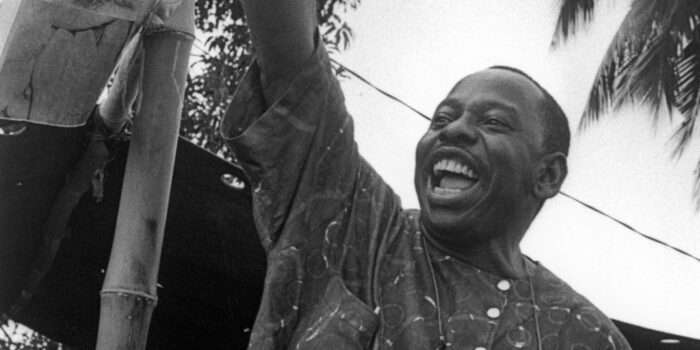
Kenule Saro-Wiwa and Shell Company: The legacy of exploitation and advocacy for development in the Niger Delta, Nigeria
Kenule (Ken) Saro-Wiwa’s work shows how multinational companies like Shell (British company) have continued harmful practices from the direct colonial era, affecting the Niger Delta’s development. His life, work, advocacy and activism highlight how these issues persist and link to social work and development professions.
Exploitation of resources
Colonialists took resources from Nigeria without caring for local people. This pattern continued after independence, with Shell causing major environmental damage in the Niger Delta. This exploitation hurt local groups like the Ogoni and Ijaw people, showing a lack of fairness as these communities suffered from resource extraction while getting little in return.
Environmental damage
Colonial rulers ignored the need to protect the environment for resource extraction, and this continued with Shell. The company’s pollution of land and water in the Niger Delta made it hard for local communities, including the Ekpeye and Ukwuani, to sustain themselves. Social work values like justice (equity and fairness) stress the need to protect natural resources to help community well-being.
Ignoring local communities
Colonisers imposed their will on local people without considering their needs. Similarly, Shell often ignored the rights and needs of the Ogoni and other local communities. Despite protests, Shell focused on profit, worsening socio-economic issues. Social work values of respect and support are relevant here, as Shell’s actions prevented meaningful local participation in decisions affecting their lives. The oganiru (community unity) was undermined by these actions.
Corruption and mismanagement
Corruption and poor management marked many colonial administrations and continued with Shell’s operations in Nigeria. Corruption and collusion with officials further harmed local communities. Social work concepts of fairness and honesty are important, advocating for proper management of resources and holding companies accountable for their actions.
Resistance and advocacy
Resistance to exploitation during the colonial era was often harshly repressed. Ken Saro-Wiwa’s activism against Shell represents modern resistance and advocacy. His leadership in MOSOP sought to challenge Shell’s practices and push for fair development. This aligns with social work ideas of standing up for others and supporting their rights, as Saro-Wiwa worked to make sure the voices of marginalised communities were heard. The nkịtị (unity) of the Ogoni people was a core part of his struggle.
Why Ken Saro-Wiwa was killed
Ken Saro-Wiwa was executed in 1995 due to his outspoken opposition to Shell’s environmental destruction and human rights abuses in the Niger Delta. The Nigerian government, led by General Sani Abacha, saw Saro-Wiwa’s activism and leadership of the Movement for the Survival of the Ogoni People (MOSOP) as a threat to their control and the interests of powerful oil companies. His execution was an attempt to silence his voice and suppress the growing demand for environmental and social justice in the region.
What Ken Saro-Wiwa was tried for
Ken Saro-Wiwa was tried and convicted for his alleged role in the deaths of four Ogoni chiefs who were killed during protests against Shell’s activities. The Nigerian government accused Saro-Wiwa and other MOSOP leaders of inciting violence and murder. The trial was widely criticised as unfair and politically motivated, aiming to silence opposition and suppress the Ogoni people’s demands for environmental and social justice. Many believe that Saro-Wiwa was targeted for his strong stance against the oil company and the government’s corruption.
Saro-Wiwa’s work and the struggles of the Ogoni people show how colonial exploitation and neglect of local needs have continued through multinational companies. His activism aimed to fix these issues and promote fair and sustainable development, reflecting core social work values.
Publications and productions by Ken Saro-Wiwa
- Sozaboy: A novel in rotten English (1985) – A novel about the Nigerian civil war, highlighting fairness and human rights.
- The gulf between us (1981) – Essays on the oil industry’s impact on local communities, focusing on social and environmental justice.
- Genocide in Nigeria: The Ogoni tragedy (1992) – A report on the abuses faced by the Ogoni people due to oil exploitation.
- A month and a day: A detention diary (1995) – Saro-Wiwa’s diary of his prison experiences, focusing on resilience and justice.
- Nigeria’s struggle for survival (1989) – Writings on Nigeria’s political problems and the quest for development.
- Letters to the editor (1994) – A collection of letters addressing social and environmental issues in Nigeria.
Ken Saro-Wiwa’s writings and activism are important for understanding and tackling environmental and social issues in the Niger Delta, reflecting key social work values.
What are the solutions?
To address exploitation and environmental damage in the Niger Delta and similar African communities, several actions are crucial from a social development perspective. Local communities should be actively involved in decision-making through forums and strengthened local governance. Environmental restoration is needed, including cleaning up pollution and protecting wildlife. Promoting economic diversification by investing in agriculture and small businesses can create sustainable livelihoods. Transparency and accountability must be improved to prevent corruption, with strict enforcement of regulations. Education and capacity building are important for raising awareness about sustainable practices. Addressing historical grievances and ensuring fair distribution of development benefits will support social justice. Strengthening legal frameworks to protect the environment and human rights, alongside building partnerships with governments, NGOs, businesses, and local communities, will enhance these efforts. This approach aims to support equitable and sustainable development in the Niger Delta and similar regions across Africa.
Use the form below to subscibe to Owia Bulletin.
Discover more from Africa Social Work & Development Network | Mtandao waKazi zaJamii naMaendeleo waAfrika
Subscribe to get the latest posts sent to your email.



